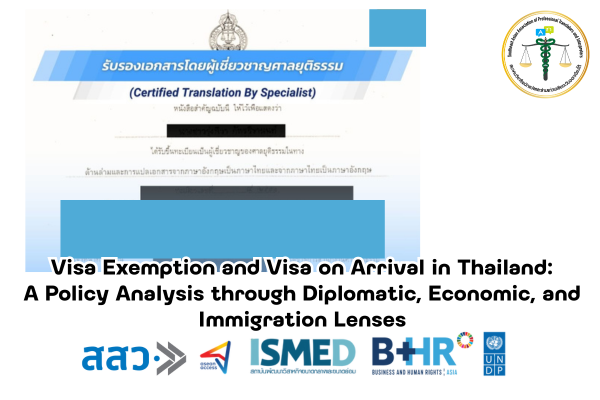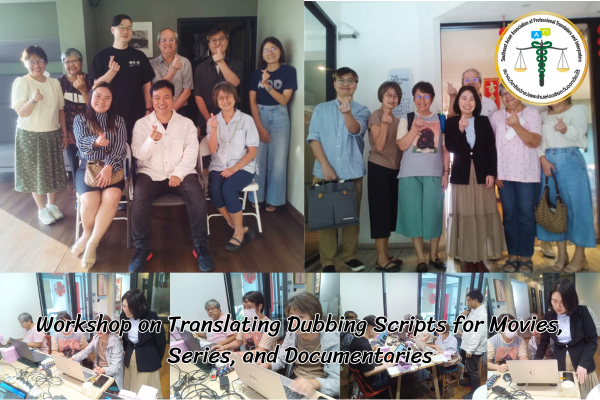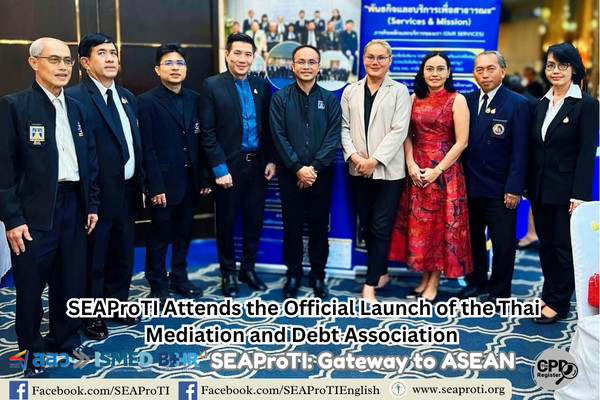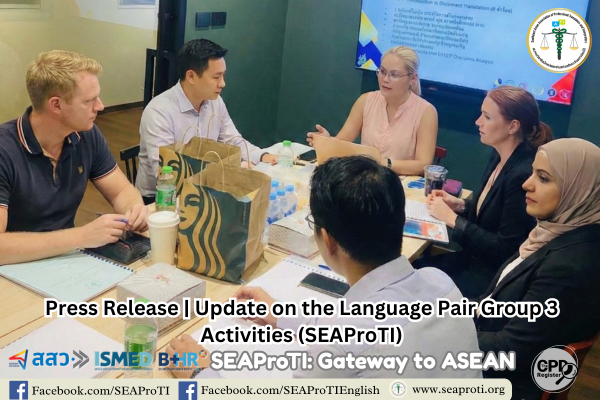The Role and Scope of “Court-Appointed Experts” in the Thai Judiciary
Understanding Judicial Experts under the President of the Supreme Court’s Regulation B.E. 2560 (2017): Clarifying Their Function and Preventing Misrepresentation
Introduction
In Thailand’s judicial system, certain cases involve technical or academic issues that exceed judges’ general legal knowledge. In such cases, courts are authorized under the Regulation of the President of the Supreme Court B.E. 2560 (2017) to appoint “court experts”—specialized individuals registered with the Office of the Judiciary—to provide informed opinions or factual clarifications to assist the court in its deliberations.
However, in recent years, some private parties have misleadingly advertised themselves as “translators of the Court of Justice” or “certified by the court,” which misrepresents the true intent of the regulation. Such claims are inaccurate and risk deceiving the public into believing that translation services are endorsed or certified by the judiciary, when in fact, the judiciary has no such endorsement system for commercial purposes.
What Is a Court Expert?
A court expert refers to an individual with specialized knowledge, expertise, or experience who is officially registered with the Office of the Judiciary and designated to assist the court by offering technical insights, factual assessments, or academic opinions.
Importantly, court experts are not parties to the dispute but serve as neutral assistants to the court, providing their input to ensure an informed and fair judicial process.
When Are Court Experts Used?
| Function | Example | Purpose |
|---|---|---|
| Oral testimony | Explaining specialized issues during hearings | Helps the court understand complex technical topics (e.g., engineering, medicine, linguistics) |
| Written report | Analyzing evidence or data and compiling expert opinions | Supports the court’s deliberation process with documented insights |
| Inspection and examination | Examining documents, physical objects, locations, or technical evidence | Confirms factual matters under dispute |
| Assisting in formulating questions | Helping the court identify key academic or technical questions | Ensures clarity and precision in fact-finding and judgment |
Types of Experts Commonly Appointed by Thai Courts
- Physicians / Forensic pathologists
- Engineers
- Accountants / Auditors
- Legal scholars / Linguists (in cases involving translation)
- Forensic scientists / Linguists
- Psychologists / Social workers (particularly in juvenile or family courts)
Being a translator alone does not qualify one as a court expert. A translator must be formally registered and appointed by the Office of the Judiciary to serve in that role.
Why Are Court Experts Important?
- They reduce factual inaccuracies and misunderstandings in court proceedings
- They promote fairness and neutrality in fact-finding
- They help prevent reliance on incorrect assumptions or personal biases
- They ensure that court decisions are supported by academically sound reasoning
Misuse of the Term “Court Translator” Is Misleading and Unlawful
In practice, the Thai judiciary does not appoint or endorse any individual or company as an official “court translator” for commercial use. Any claim such as “certified translator of the Court of Justice” or “official translator for the judiciary” without formal appointment and registration is misleading.
Such misrepresentation not only violates the intent of the President of the Supreme Court’s regulation but may also constitute public deception, damaging public trust in the judiciary and the integrity of legal processes.
Conclusion
Court-appointed experts play a vital role in assisting Thai courts with complex technical issues. Their function must be neutral, evidence-based, and institutionally recognized. Misleading claims that suggest official ties to the judiciary, such as unauthorized use of the term “court translator,” must be clearly condemned and corrected, as they distort public understanding and erode confidence in the justice system.
Therefore, court-appointed experts in the field of interpreting and document translation between English and Thai are not intended to be affiliated with or used for the commercial purposes of private translation agencies or companies. Claims such as “documents certified by a court expert in interpreting and translation” or “translated by a court expert in interpreting and translation” made by private businesses misrepresent the true purpose of such appointments.
The role of court-appointed experts in interpreting and translation is strictly limited to supporting the court in judicial proceedings. Their expertise is designated solely for assisting the court, and not for commercial endorsement or use by private-sector service providers.
Remark: Download the Regulation of the President of the Supreme Court B.E. 2560 (2017) on Court Experts, in Thai as officially published in the Royal Gazette, and the English translation prepared by the Southeast Asian Association of Professional Translators and Interpreters, below.
SEAProTI’s certified translators, translation certification providers, and certified interpreters:
The Southeast Asian Association of Professional Translators and Interpreters (SEAProTI) has officially announced the criteria and qualifications for individuals to register as “Certified Translators,” “Translation Certification Providers,” and “Certified Interpreters” under the association’s regulations. These guidelines are detailed in Sections 9 and 10 of the Royal Thai Government Gazette, issued by the Secretariat of the Cabinet under the Office of the Prime Minister of the Kingdom of Thailand, dated July 25, 2024, Volume 141, Part 66 Ng, Page 100.
To read the full publication, visit: the Royal Thai Government Gazette
บทบาทและขอบเขตของ “ผู้เชี่ยวชาญของศาลยุติธรรม”
ตามข้อบังคับประธานศาลฎีกา พ.ศ. 2560: การใช้งาน ความเข้าใจที่ถูกต้อง และการป้องกันการแอบอ้าง
บทนำ
ในกระบวนพิจารณาคดีของศาลยุติธรรมไทย มีบางกรณีที่ต้องพิจารณาประเด็นทางเทคนิค วิทยาศาสตร์ หรือความรู้เฉพาะทางที่เกินขอบเขตความเชี่ยวชาญของผู้พิพากษา ดังนั้น ศาลจึงมีอำนาจตามข้อบังคับประธานศาลฎีกา พ.ศ. 2560 ในการแต่งตั้ง “ผู้เชี่ยวชาญของศาล” เพื่อให้ความเห็นประกอบดุลพินิจของศาลอย่างเป็นทางการ โดยบุคคลดังกล่าวจะต้องผ่านกระบวนการคัดเลือกและขึ้นทะเบียนกับสำนักงานศาลยุติธรรมอย่างเป็นทางการ
อย่างไรก็ตาม ในช่วงหลังมานี้ ได้ปรากฏการแอบอ้างจากเอกชนบางรายที่โฆษณาตนว่าเป็น “ผู้แปลของศาล” หรือ “นักแปลของศาลยุติธรรม” ซึ่งไม่เพียงแต่คลาดเคลื่อนจากความจริง แต่ยังอาจเป็นการหลอกลวงผู้ใช้บริการโดยสื่อให้เข้าใจผิดว่าศาลแต่งตั้งหรือรับรองบริการแปลเอกสารนั้น ๆ ทั้งที่ในความเป็นจริง ไม่มีระบบแต่งตั้งนักแปลของศาลเพื่อใช้ในเชิงพาณิชย์เช่นนั้นแต่อย่างใด
ความหมายของ “ผู้เชี่ยวชาญของศาล”
ผู้เชี่ยวชาญของศาล หมายถึง บุคคลผู้มีความรู้ ความสามารถ และประสบการณ์เฉพาะด้าน ที่ผ่านการพิจารณาและขึ้นทะเบียนไว้กับสำนักงานศาลยุติธรรม เพื่อทำหน้าที่ช่วยเหลือศาลในการพิจารณาคดี โดยให้ข้อมูล ข้อเท็จจริง หรือความเห็นในประเด็นเฉพาะทางทางวิชาการ
บทบาทของผู้เชี่ยวชาญไม่ใช่ “พยาน” หรือ “คู่ความ” แต่เป็น “ผู้ช่วยศาล” ที่มีสถานะเป็นกลาง และต้องปฏิบัติงานด้วยความเป็นวิชาชีพ ไม่อยู่ภายใต้อิทธิพลของคู่ความฝ่ายใด
ขอบเขตการใช้งานในกระบวนพิจารณาคดี
ผู้เชี่ยวชาญอาจมีบทบาทดังนี้:
| ลักษณะงาน | ตัวอย่าง | จุดมุ่งหมาย |
|---|---|---|
| ให้ความเห็นด้วยวาจา | ชี้แจงต่อศาลในห้องพิจารณา | ช่วยให้ศาลเข้าใจประเด็นเฉพาะ เช่น ภาษาศาสตร์, แพทย์, วิศวกรรม |
| ทำรายงานเป็นหนังสือ | วิเคราะห์หลักฐานและจัดทำความเห็น | ใช้ประกอบดุลพินิจของศาลในการตัดสินคดี |
| ตรวจพิสูจน์ | ตรวจสอบวัตถุ สถานที่ หรือเอกสาร | ยืนยันข้อเท็จจริงที่เป็นประเด็นในคดี |
| วางประเด็นคำถาม | ช่วยศาลระบุคำถามทางเทคนิค | ทำให้กระบวนพิจารณามีความชัดเจนและมีทิศทาง |
สาขาผู้เชี่ยวชาญที่พบในศาล
- แพทย์ / แพทย์นิติเวช
- วิศวกร
- นักบัญชี / ผู้ตรวจสอบบัญชี
- นักกฎหมาย / นักอักษรศาสตร์
- นักภาษาศาสตร์ / นักนิติวิทยาศาสตร์
- นักจิตวิทยา / นักสังคมสงเคราะห์ (โดยเฉพาะในคดีเยาวชน)
การเป็นนักแปล ไม่ได้แปลว่าเป็นผู้เชี่ยวชาญของศาลโดยอัตโนมัติ เว้นแต่จะได้รับการแต่งตั้งตามขั้นตอนทางการเท่านั้น
ประโยชน์ของผู้เชี่ยวชาญต่อกระบวนการยุติธรรม
- สนับสนุนการวินิจฉัยข้อเท็จจริงด้วยความรู้เฉพาะทาง
- ลดการใช้ความเชื่อหรืออคติส่วนบุคคล
- สร้างความเป็นธรรม และส่งเสริมกระบวนการยุติธรรมที่โปร่งใส
- ทำให้คำพิพากษามีหลักวิชาการรองรับ
การแอบอ้างเป็น “นักแปลของศาล” ผิดวัตถุประสงค์และอาจเข้าข่ายหลอกลวง
ในทางปฏิบัติ ศาลไม่มีระบบแต่งตั้งบุคคลใดเป็น “นักแปลของศาล” เพื่อใช้ชื่อเสียงของศาลในการให้บริการเชิงพาณิชย์แต่อย่างใด
การแอบอ้างว่า “เป็นผู้แปลของศาล” หรือ “ได้รับการแต่งตั้งจากศาลยุติธรรม” โดยไม่มีชื่ออยู่ในทะเบียนผู้เชี่ยวชาญของสำนักงานศาลยุติธรรม ถือว่าเป็นการให้ข้อมูลคลาดเคลื่อน และอาจเข้าข่ายหลอกลวงประชาชน ซึ่งส่งผลเสียต่อภาพลักษณ์ของกระบวนการยุติธรรมโดยรวม
สรุป
ผู้เชี่ยวชาญของศาลมีบทบาทสำคัญในการช่วยเหลือศาลพิจารณาคดีที่ซับซ้อน ด้วยความรู้ทางวิชาการอย่างเป็นกลาง อย่างไรก็ตาม การแอบอ้างว่าสังกัดหรือได้รับรองจากศาลโดยไม่ได้ขึ้นทะเบียนอย่างเป็นทางการ ถือเป็นพฤติกรรมที่ขัดต่อข้อบังคับ และสร้างความเสียหายทั้งต่อผู้บริโภคและสถาบันตุลาการ
หากต้องการตรวจสอบรายชื่อผู้เชี่ยวชาญที่ขึ้นทะเบียนไว้ในแต่ละสาขา หรือดาวน์โหลดแบบฟอร์มคำขอขึ้นทะเบียนผู้เชี่ยวชาญศาล สามารถติดต่อ สำนักงานศาลยุติธรรม ได้โดยตรง หรือศึกษาข้อมูลเพิ่มเติมได้ที่เว็บไซต์ทางการของสำนักงานศาลยุติธรรม
ดังนั้น ผู้เชี่ยวชาญศาลยุติธรรมในสาขาการล่ามและการแปลเอกสารระหว่างภาษาอังกฤษและภาษาไทย มิได้มีวัตถุประสงค์เพื่อเชื่อมโยงหรือใช้งานในเชิงพาณิชย์ร่วมกับบริษัทแปลหรือหน่วยงานแปลเอกชนแต่อย่างใด การกล่าวอ้างโดยภาคเอกชนว่า “เอกสารได้รับการรับรองโดยผู้เชี่ยวชาญศาลยุติธรรมในด้านการล่ามและการแปล” หรือ “แปลโดยผู้เชี่ยวชาญศาลยุติธรรมในด้านการล่ามและการแปล” ถือเป็นการบิดเบือนวัตถุประสงค์ของการแต่งตั้งผู้เชี่ยวชาญศาลตามข้อบังคับที่แท้จริง
บทบาทของผู้เชี่ยวชาญศาลยุติธรรมในด้านการล่ามและการแปลนั้น จำกัดอยู่เฉพาะการให้ความช่วยเหลือแก่ศาลในการพิจารณาคดีเท่านั้น ความเชี่ยวชาญของบุคคลดังกล่าวมีไว้เพื่อการปฏิบัติหน้าที่ในกระบวนการยุติธรรม ไม่ใช่เพื่อการรับรองเชิงพาณิชย์ หรือการใช้อ้างอิงในกิจกรรมทางธุรกิจของภาคเอกชน
หมายเหตุ: ดาวโหลด ข้อบังคับประธานศาลฎีกา พ.ศ. 2560 “ผู้เชี่ยวชาญของศาลยุติธรรม” ฉบับภาษาไทย ประกาศในราชกิจจานุเบกษา และฉบับแปลเป็นภาษาอังกฤษโดยสมาคมวิชาชีพนักแปลและล่ามแห่งเอเชียตะวันออกเฉียงใต้ ด้านล่าง
เกี่ยวกับนักแปลรับรอง ผู้รับรองการแปล และล่ามรับรองของสมาคมวิชาชีพนักแปลและล่ามแห่งเอเชียตะวันออกเฉียงใต้
สมาคมวิชาชีพนักแปลและล่ามแห่งเอเชียตะวันออกเฉียงใต้ (SEAProTI) ได้ประกาศหลักเกณฑ์และคุณสมบัติผู้ที่ขึ้นทะเบียนเป็น “นักแปลรับรอง (Certified Translators) และผู้รับรองการแปล (Translation Certification Providers) และล่ามรับรอง (Certified Interpreters)” ของสมาคม หมวดที่ 9 และหมวดที่ 10 ในราชกิจจานุเบกษา ของสำนักเลขาธิการคณะรัฐมนตรี ในสำนักนายกรัฐมนตรี แห่งราชอาณาจักรไทย ลงวันที่ 25 ก.ค. 2567 เล่มที่ 141 ตอนที่ 66 ง หน้า 100 อ่านฉบับเต็มได้ที่: นักแปลรับรอง ผู้รับรองการแปล และล่ามรับรอง

























